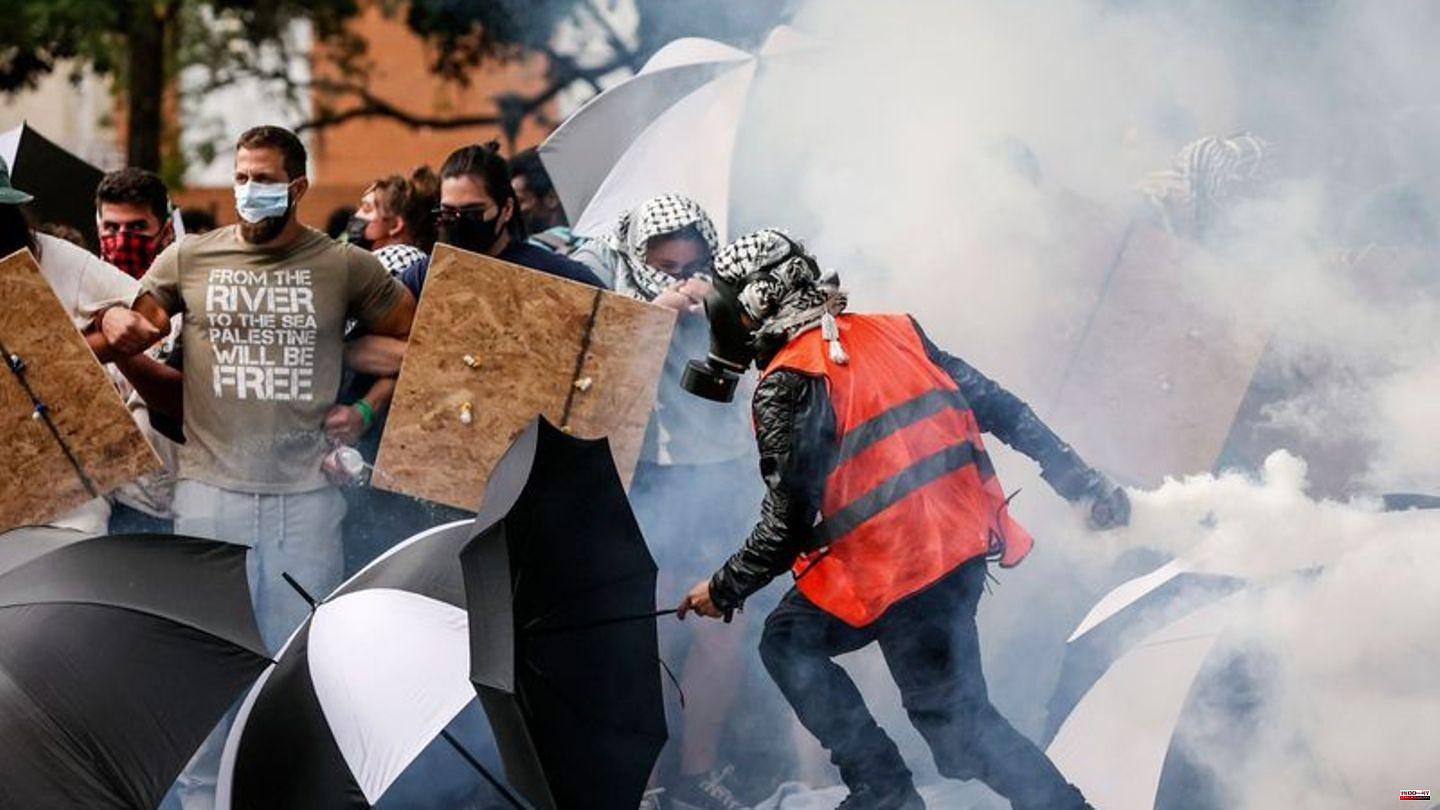Pro-Palestinian demonstrators are threatened with expulsion after occupying a building at New York's elite Columbia University. It has been made very clear "that the work of the university cannot be endlessly disrupted by demonstrators who violate the rules. If this continues to happen, there will be clear consequences," the university said in a statement.
The dozens of students who occupied Hamilton Hall were threatened with expulsion. The White House also expressed clear criticism of the actions of the demonstrators who are protesting against Israel's actions in the Gaza war and the US government's support of the Jewish state.
The protests at the university in the liberal east coast metropolis of New York, which had been going on for almost two weeks, had escalated. Demonstrators broke into Hamilton Hall on the northern Manhattan campus, which had already been occupied in 1968 during a protest against the Vietnam War.
Wave of protests across the country
Other universities have long been caught up in the wave of protests. According to US media, more than 1,000 demonstrators have been arrested since the protests began across the country - yesterday the police intervened in the states of California, Georgia and North Carolina, among others.
On Monday, Columbia University announced that it would suspend students if they did not leave a protest camp on university campus by the afternoon. But the opposite happened: Videos from campus showed masked people wearing black and white Palestinian scarves breaking windows and barricading the entrance to Hamilton Hall with chairs and tables. According to the Columbia Spectator student newspaper, several dozen protesters broke into the building while hundreds more demonstrated outside.
Student groups Columbia Students for Justice in Palestine and Columbia University Apartheid Divest said they would not leave Hamilton Hall until their demands were met. “Occupying a building is a small risk compared to the daily resistance of Palestinians in the Gaza Strip,” said a statement shared on the X platform, formerly Twitter. The demonstrators criticize Israel's actions in the Gaza war and demand solidarity with the Palestinians. They also demand that the university cut financial ties with Israel. The university has so far rejected this.
UN Secretary General: Freedom of expression must be possible
The US government also reacted to the occupation during the night: "Forcibly taking over a building on campus is absolutely the wrong approach. This is not an example of peaceful protest," said National Security Council Communications Director John Kirby. A small percentage of students should not be able to disrupt everyone's academic education. “Students who pay to attend college and want to pursue an education should be able to pursue it freely and feel safe doing so,” Kirby said. Hate speech and symbols of hate have no place in the USA.
UN Secretary-General António Guterres also spoke out against hate speech, but also emphasized that freedom of expression must be possible. Universities should use their wisdom to deal with the situation appropriately.
Criticism of the New York Police Department
Almost two weeks ago, an operation by the New York police at Columbia University caused a stir and criticism, which resulted in protests and the setting up of tent camps at dozens of universities in the USA. Some demonstrators are accused of anti-Semitism and trivializing the Islamist Hamas, whose goal is the destruction of the state of Israel.
Israeli President Izchak Herzog called the "horrific anti-Semitic actions" at Columbia University deeply disturbing. “American science must become aware of the threat,” Herzog wrote on Platform X. He spoke of “a clear and present danger to academic freedom and to the lives of Jews on campus.” Herzog called for anti-Semitic actions to be stopped on campus.
Hamas and other Islamist groups killed around 1,200 people and kidnapped more than 250 as hostages in the Gaza Strip during their attack on Israel on October 7 last year. Israel responded with a ground offensive and air strikes on the coastal area. As a result, according to information from the Hamas-controlled health authority - which can hardly be independently verified - around 34,500 people have been killed since the start of the war.












